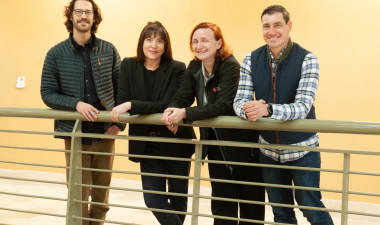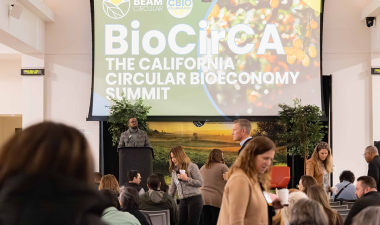It’s easy to think you know California’s Central Valley. Every city along Highway 99 seems to share the same strip mall, sun-beaten subdivisions and frontage road. Everyone who lives in those cities knows the area where they live, the fun section of their slowly revitalizing downtown and the location of their favorite food trucks.
What more is there? A lot more, and Mark Arax will tell you about it via Zoom at 6 p.m. on Tuesday, April 20 as part of Stanislaus State’s virtual Earth Month celebration. Arax will talk to the campus community and public about his latest book, “The Dreamt Land: Chasing Water and Dust Across California.” It’s an in-depth and eye-opening look at the environmental and social consequences of the Valley’s farming empires, how the Valley’s current environmental condition came to be, California history and how his family’s own story is woven into the fabric of the region.
Arax is an award-winning journalist and author who has written prolifically and personally about the Valley, its history and its agricultural underpinnings. A native of Fresno who still lives in his hometown, he has built a solid career offering readers a more thorough understanding of the complexities of the Central Valley.
As a highlight of Stan State’s virtual Earth Month, Arax expects his talk to cover how the Valley is a constantly changing landscape at the hands of mankind and the cycles of nature. He’ll talk about the environmental damage caused by abuse of the land and its resources, the impact on the region’s indigenous people and the immigrants who came here looking for brighter futures. He expects to share a smidgeon of the research he has compiled over decades, including stories gleaned from three years of oral histories gathered from Black sharecroppers who traveled to the Valley from the South in the 1940s to escape Jim Crow laws and exploitation. He might even detail why he asserts the City of Patterson can no longer call itself the apricot capital of the world due to its orchards being replaced by fulfillment centers and what he calls “concrete fields.”
Mainly, he says, he hopes to give his Stan State audience a truer understanding of the place where they live and spark their desire to learn even more about their home — its present, its past and its people.
“Students need to know their story,” he said. “We need to tell them the story of their place.”


